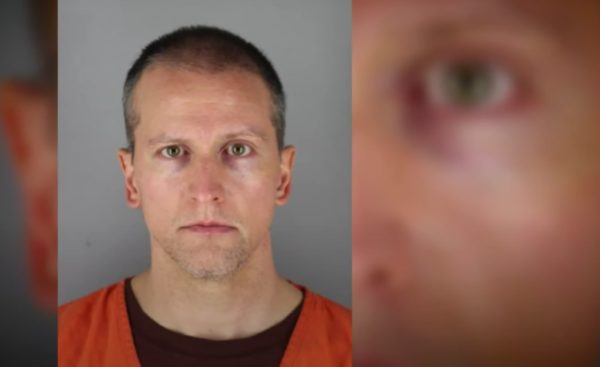Lawyer-less and Penniless, Derek Chauvin Files from Prison to Appeal His Convictions for Taking George Floyd’s Life, Claims Court ‘Abused Its Discretion’
Derek Chauvin, the former Minneapolis police officer convicted of second-degree unintentional murder, third-degree murder, and second-degree manslaughter and sentenced to 22 and a half years behind bars on April 20 for killing George Floyd, plans to appeal the decision, claiming the court “abused its discretion.”
In documents filed on Thursday, Sept. 23, and obtained by CBS, the disgraced officer intends to appeal based on 14 points of contention with his case. Chauvin is claiming that the court unfairly denied his request for a change of venue before his trial, which he believes supports his request for an appeal. The 19-year MPD veteran had sought to have his trial moved out of Hennepin County due the publicity surrounding the case.
At the time, Judge Peter Cahill denied the request, stating, “I don’t think there’s any place in the state of Minnesota that has not been subjected to extreme amounts of publicity on this case.”
Former Minneapolis police officer Derek Chauvin set to appeal his convictions in George Floyd case. (Photo: KARE 11 YouTube screenshot)
The 45-year-old’s filing this week also stated that the district court “failed to make an official record of the numerous sidebar conferences that occurred during trials.” In addition, the filing states “the district court abused its discretion when it strictly limited and undercut the admissibility of George Floyd’s May 6, 2019 arrest.”
Chauvin’s letter says the courts lapsed when it concluded that Morries Hal, the man who was present with Floyd on the day of his arrest, could not be forced to testify on behalf of the defense.
Elsewhere, the letter accuses the state of “prejudicial prosecutorial misconduct” and says “the district court abused its discretion when it denied Appellant’s post-verdict motion for a new trial due to juror misconduct.” However, the judge ruled the defense didn’t find any evidence of juror misconduct either during trial or during jury selection that warranted review.
Chauvin also told the court he did not have a lawyer and the Minneapolis Police and Peace Officers Association, which paid for his trial attorney, told him their obligation to pay for his legal representation “terminated upon my conviction and sentencing.”
Chauvin said he is currently living off “nominal prison wages” and cannot afford private counsel for his appeal. He said he applied for a Minnesota appellate public defender but was denied representation. This week’s request is asking for the Minnesota Supreme Court to extend his deadline outside of the normal 90 days from sentencing until the court reviews his application for an appellate public defender.
Earlier this month, Chauvin pleaded not guilty to charges in a separate matter related to the use of unreasonable force on a 14-year-old in September 2017.

